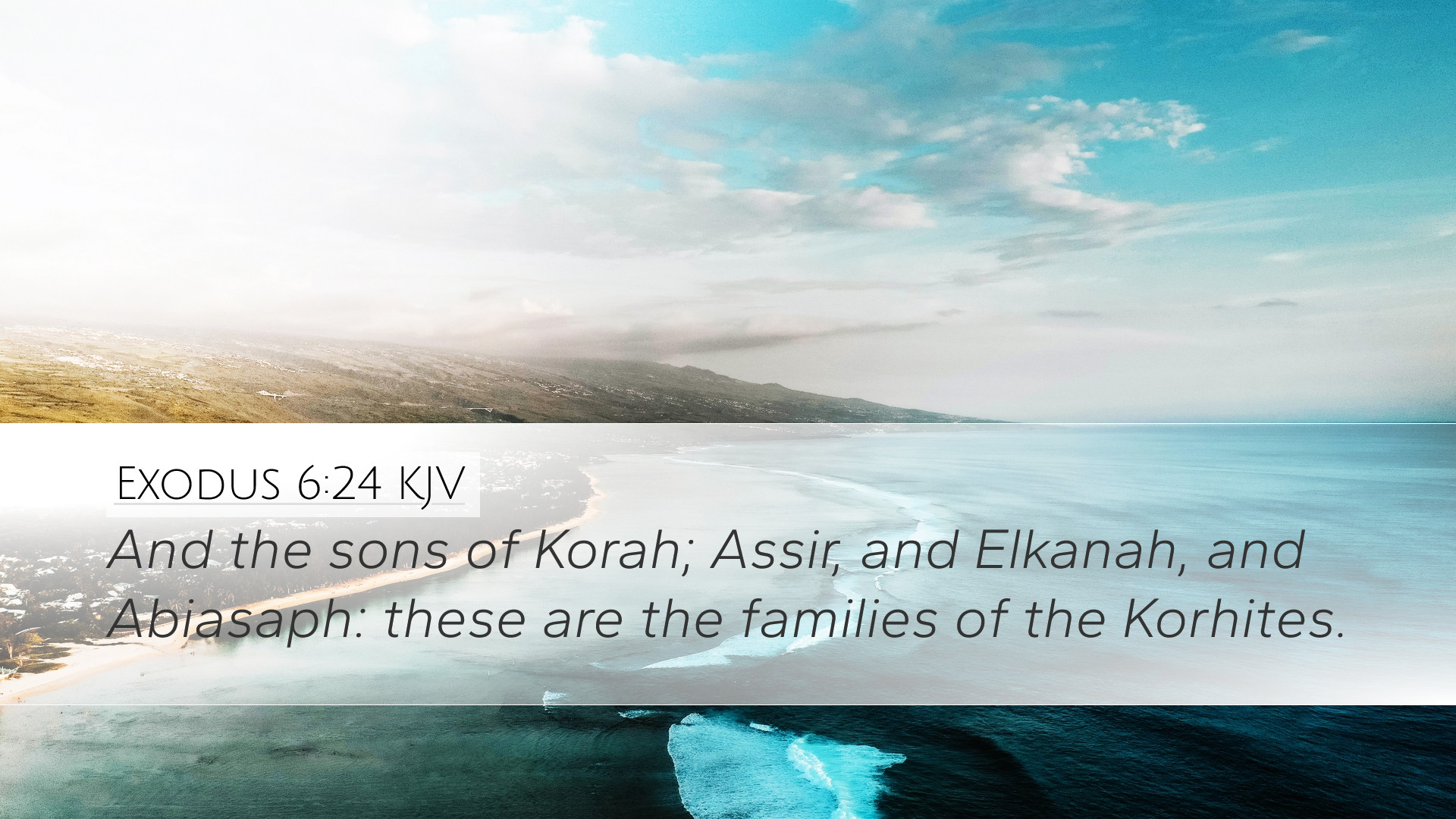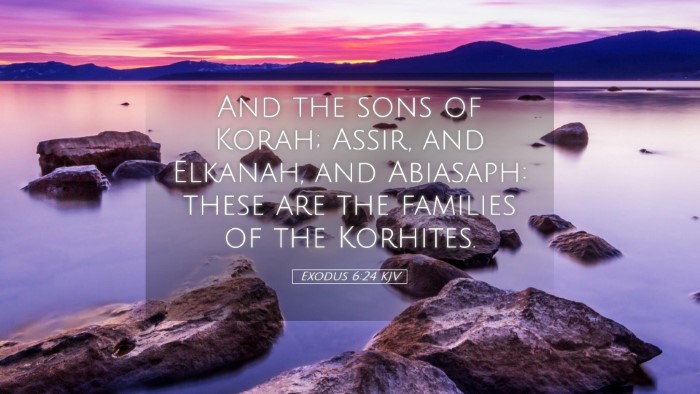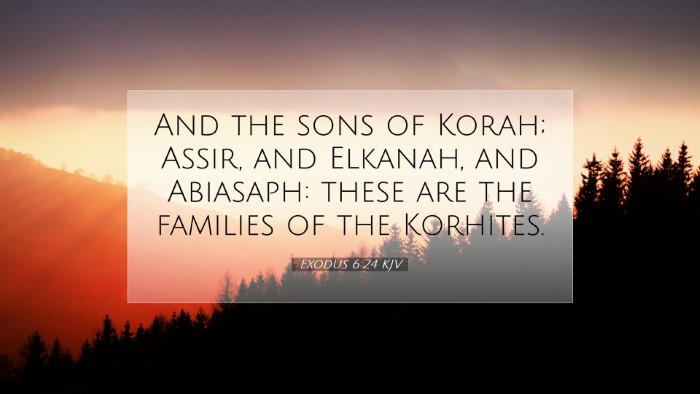Exodus 6:24 - Commentary
Exodus 6:24 reads: "And the sons of Korah; Assir, and Elkanah, and Abiasaph: these are the families of the Korhites." This verse, situated within a lineage context, highlights the descendants of Korah and their significance in the Levitical priesthood. It is imperative to unpack this verse not only in its immediate context but also in the broader narrative of Israelite history.
1. Historical Context
The Korahites were descendants of Korah, a Levite who famously rebelled against Moses and Aaron in Numbers 16. This rebellion serves as a poignant reminder of human sinfulness and God's judgment. Yet, we find the lineages of these descendants continuing within the context of divine purpose.
- Divine Mercy: Despite the rebellion of Korah, God showed mercy by allowing some of his descendants to serve Him. This reflects the grace found in God's dealings with His people.
- Lineage Importance: The listing of names signifies the importance of family and lineage in ancient Israelite culture, emphasizing the roles that these families would play in worship and service.
2. Insights from Commentaries
Matthew Henry
Henry notes the significance of including Korah's descendants, stating that their existence as families of the Korhites is not merely a genealogical note but is infused with spiritual meaning. He sheds light on God’s purpose of remembering families who belong to Him, emphasizing that they no longer carry the stain of their ancestor’s sin. The descendants of Korah eventually became gatekeepers and musicians in the house of the Lord (1 Chronicles 9:19; 1 Chronicles 26:1), and many Psalms are attributed to the sons of Korah, demonstrating their crucial role in worship.
Albert Barnes
Barnes comments on the importance of the family of Korah in the ecclesiastical structure of Israel. He points out that their inclusion in the priestly line signifies redemption and restoration after rebellion. The traditions highlight that the sons of Korah were instrumental in preserving the worship of Yahweh and were seen as legitimate worship leaders despite their heritage. This indicates how God can and does use the flawed for His purposes.
Adam Clarke
Clarke emphasizes the liturgical role of the Korahites, particularly their contributions to Davidic worship. He indicates that the families of the Korhites were involved in *liturgical responsibilities*, and the mention of specific names like Assir, Elkanah, and Abiasaph suggests their established positions in worship. This progression from rebellion to leadership illustrates profound themes of redemption and purpose in the narrative of Israel.
3. Theological Implications
This verse invites theological reflection on several key themes:
- Grace and Redemption: It serves as a powerful reminder that even those from troubled backgrounds can find their place in God’s redemptive story.
- Legacy of Worship: The Korahites exemplify how a legacy can be transformed; their offspring contributed significantly to worship, offering a counter-narrative to the sins of their ancestor.
- Community and Identity: This verse underscores the significance of community identity within God’s covenant community, inviting believers today to consider their own legacy in the faith.
4. Practical Applications
The practical lessons from Exodus 6:24 can be profound for modern believers, particularly for pastors and church leaders:
- Emphasizing Grace: In sermon preparation, highlight the transformative power of grace shown in the lives of the Korahites, reminding congregants that God can use anyone, regardless of their past.
- Encouraging Legacy-Building: Teach about the importance of establishing a godly legacy. This can inspire families to pursue godliness in their generations.
- Role of Worship: Draw attention to the significance of worship in the life of the church, linking back to the Korahites’ role, and encourage participation in collective worship experiences.
5. Conclusion
Exodus 6:24 serves as a rich text for understanding both the historical and theological dimensions of the Israelite community. By examining the implications of the Korahites as detailed in public domain commentaries, one can appreciate the depth of God's grace and the transformative power that resides within the lineage of faith. This verse is not just a genealogical footnote; it affirms God's continuous work in creating a people for Himself, despite their histories.


